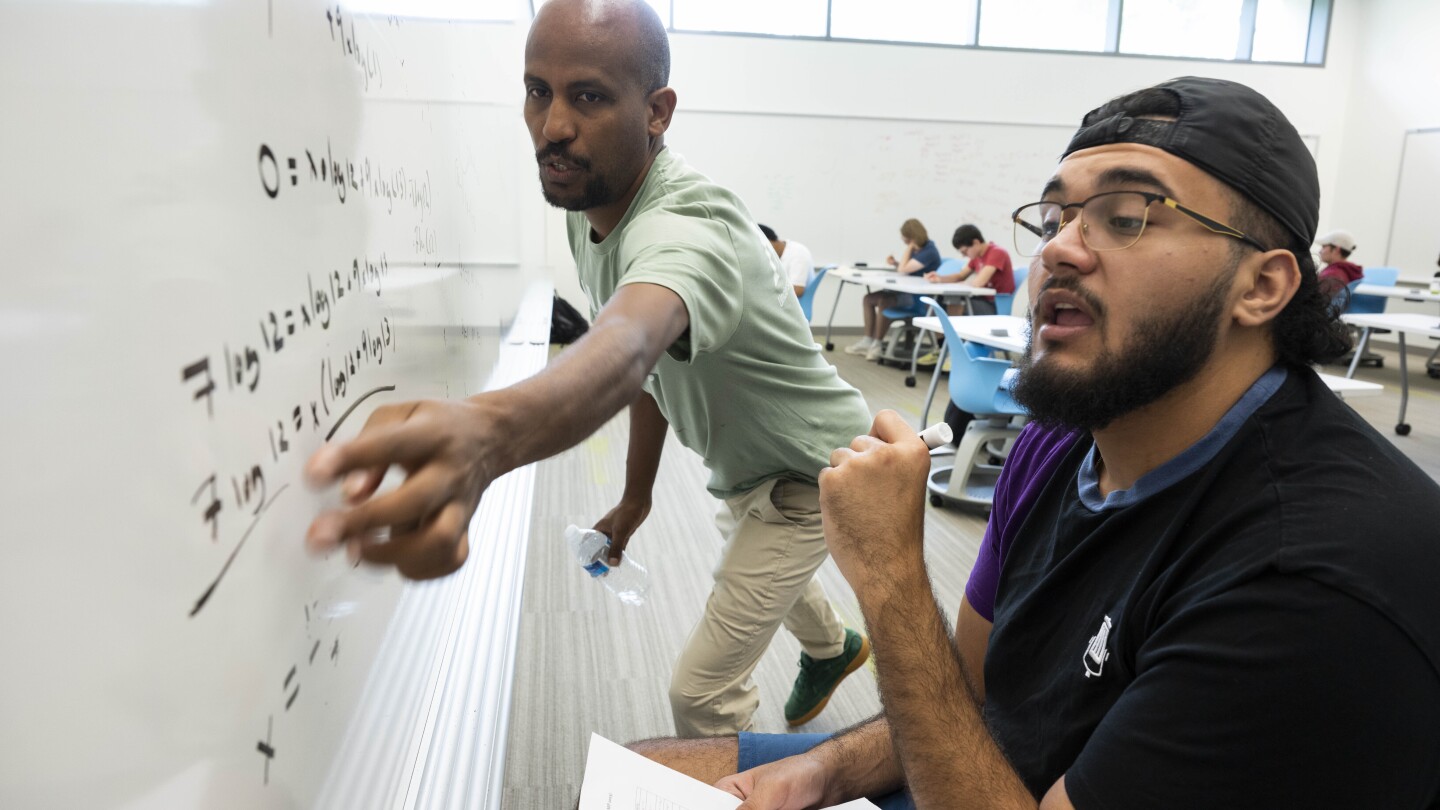Colleges across the country are grappling with the same problem as academic setbacks from the pandemic follow students to campus. At many universities, engineering and biology majors are struggling to grasp fractions and exponents. More students are being placed into pre-college math, starting a semester or more behind for their majors, even if they get credit for the lower-level classes.
Colleges largely blame the disruptions of the pandemic, which had an outsize impact on math. Reading scores on the national test known as NAEP plummeted, but math scores fell further, by margins not seen in decades of testing. Other studies find that recovery has been slow.



It’s not really an analogy b/c I’m referring to how learning happens in general for any subject, whether math or basketball.
Yes, we don’t need to memorize all those old mental math tricks used before calculators were invented, but you still need to understand exponentiation, which follows from multiplication, which follows from putting time in to practice the basic times tables.
Yes, but do you need to know how to solve them? I’d say that’s fine stuff for reviewing, as long as you understand the concepts behind them.
For example, it would be totally understandable for STEM college students to not know how to solve 1/42/3 without review. It’s just realistic and doesn’t mean they are ill-prepared. If anything, we should be teaching students that they should get used to reviewing things instead of assuming they already know.
I think so, to an academic (not necessarily a professional) level, because how could one reach a conceptual understanding without?
It’s like the professors that allow open book tests. If you’ve practiced solving before, it’ll be quick and easy to recall deep knowledge. If you haven’t practiced solving and don’t really understand the concepts, you won’t perform well enough in time.